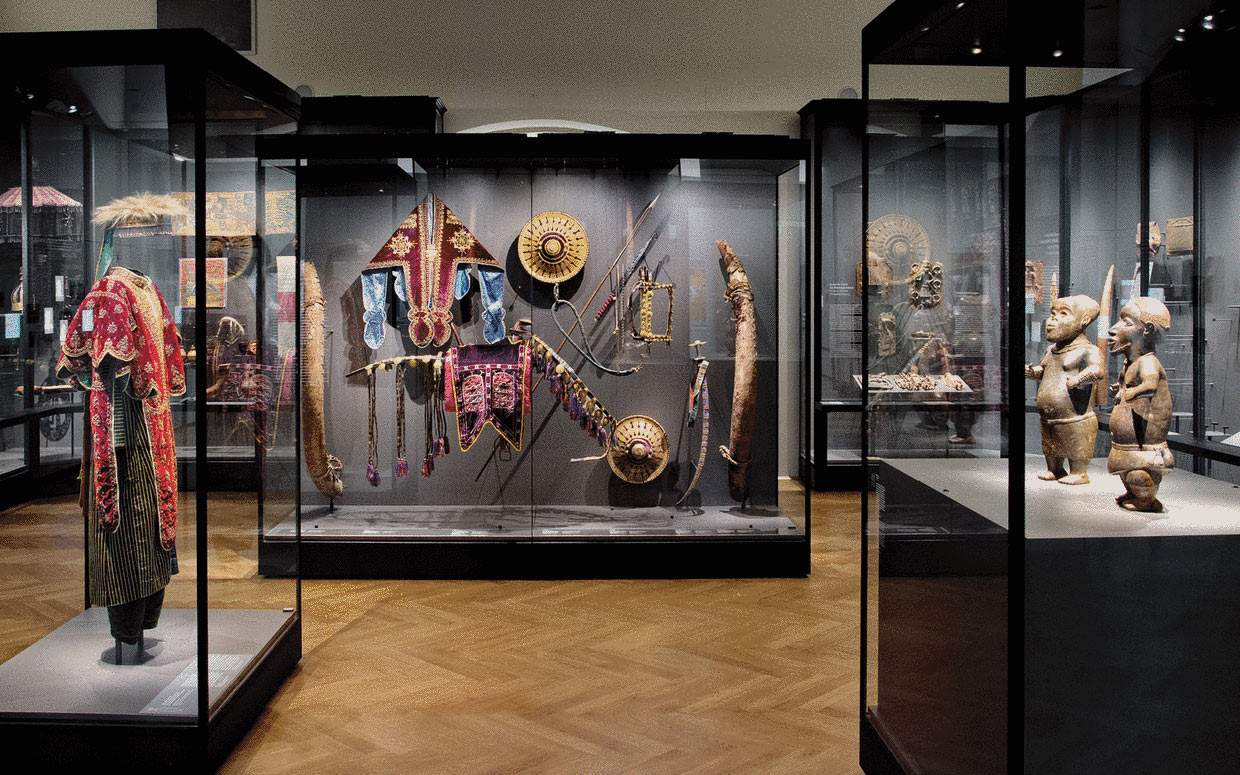After France and the Netherlands,Austria also joins the list of countries that have officially begun the process of decolonizing their museums. Indeed, the Austrian state secretary for Art and Culture (counterpart of our minister), Andrea Mayer, has set up a commission of experts of international caliber to probe Austrian museum collections for objects from contexts potentially linked to colonialism. The goal, the Ministry of Cultural Arts explains in a note, is to develop a contemporary and knowledgeable handling of the objects, as well as to handle requests for their return.
The commission will be interdisciplinary and will be tasked with making recommendations for the management of cultural property from colonial acquisition contexts and possible restitution. The commission will meet several times during 2022, and the work will be carried out in three phases. The first will deal with the contextualization of the objects, in the second it will proceed with a discussion with civil society, with the analysis of legal factors and those related to international relations, as well as the know-how of Austrian museums. Finally, the third phase will be for written recommendations on how to deal with requests for the return of relevant cultural objects. The results are expected in the spring of 2023.
The working group will be chaired by Jonathan Fine, Scientific Director of the Weltmuseum in Vienna, and is composed of Golda Ha-Eiros, Senior Curator of the Anthropological Collection of the National Museum of Namibia in Windhoek; Emmanuel Kasarhérou, President of the Musée du Quai-Branly in Paris; and Henrietta Lidchi, Chief Curator of the National Museum of World Cultures in Rotterdam; Barbara Plankensteiner, Director of the Museum am Rothenbaum - Cultures and Arts of the World (MARKK) in Hamburg; Walter Sauer, Professor of Economic and Social History at the University of Vienna; Anna Schmid, Director of the Museum der Kulturen in Basel; Katrin Vohland, Director General and Scientific Director of the Museum of Natural History in Vienna; Miloš Vec, Professor of Legal History at the University of Vienna.
“The colonial heritage of Austrian federal museums,” says Secretary of State Mayer, “will be analyzed scientifically and in a concentrated way. It is not only about dealing with colonial museum heritage, but also about answering questions concerning a postcolonial museology and a culture of memory. Let’s go deep, but also broad: it is important for me to emphasize the approach to the topic. The inclusion of various stakeholders in the committee’s work will project the results on a broad basis and thus enable the further development of contemporary and sensitive management of the cultural heritage preserved in Austrian federal museums.”
“Historically, Austria is not considered a colonial power,” the ministry’s memo further reads, “but current research shows that the Habsburg monarchy was involved in colonial activities in many ways. Consequently, the appointment of a specialized commission involving national and international expertise to develop a sustainable and understandable reference system is of great importance. The Austrian Ministry of Art and Culture attaches great importance to the creation of solid framework conditions for the scientific, transparent and sensitive management of collections from colonial acquisition contexts in federal museums and hopes to make a relevant contribution to the discussion welcomed internationally with the recommendations attese.”
The Austrian government has identified research on postcolonial provenance as an important field of work and has therefore intensified the expansion of research on the provenance of objects in state museum collections. Until now, Austrian efforts in provenance research have mainly focused on art and cultural property that was confiscated due to persecution under National Socialism. With the 1998Art Restitution Act, Austria has gained extensive experience in the field. “Although the specific responsibility of the Republic of Austria for National Socialist crimes must always remain present in the ongoing debate,” the ministry further states in a note, “this wealth of experience can also be used in the research and management of acquisitions from colonial contexts.” Dating back to only 2019 were the beginnings of Austria’s engagement in investigations of postcolonial provenance, with the event series The Museum in the Colonial Context - Austrian Federal Museums and Acquisitions in the 19th and 20th Century, carried out in collaboration with ICOM Austria.
Then in 2020 came research projects in four federal museums (all in Vienna: the Museum of Applied Arts, the Museum of Natural History, the Technical Museum, and the Weltmuseum), the results of which will be published in 2022 (after which follow-up projects will start). Meanwhile, Austria has been handling requests for returns from New Zealand (2020) and Hawaii (2021), with the process being suspended due to the Covid-19 pandemic (and the returns therefore postponed in agreement with the countries of origin). The formation of the commission announced by Secretary Mayer is the most recent step in this process.
Pictured is a room at the Weltmuseum in Vienna.
 |
| Decolonization: Austria appoints commission to analyze all museum collections |
Warning: the translation into English of the original Italian article was created using automatic tools. We undertake to review all articles, but we do not guarantee the total absence of inaccuracies in the translation due to the program. You can find the original by clicking on the ITA button. If you find any mistake,please contact us.